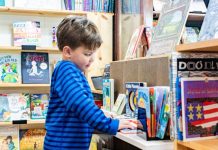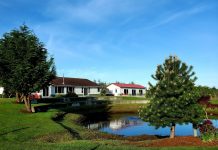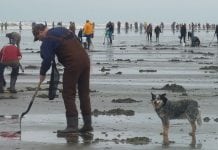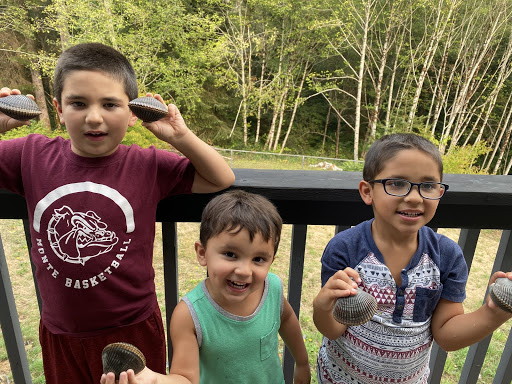
When schools turned to remote learning last March, it was new territory for most teachers. The ongoing challenge of how to keep kids engaged and on track while managing technology, with all its inherent hiccups, has been an exercise in flexibility, patience and creativity for educators everywhere. It would be unsurprising if students fell behind and their enthusiasm for learning began to flag.
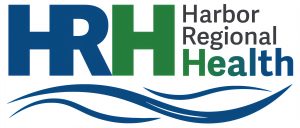
Photo courtesy: Harbor Regional Health
Yet in rural Montesano, one teacher has been forging new ground with her students through an innovative approach that combines core subjects with customized projects designed to fuel their passions. Emily Egger teaches 3rd and 4th grade in the Montesano Online and Distance Educational Learning (MODEL) program, a robust distance learning program that blends quality academic programming with a flexible schedule so that students and families can engage in school when and how it works best for them. In the past year, she has overseen remote instruction for 40 students. Creating tailor-made projects for all of them would never be feasible during in-person learning but the remote format made it possible.
“At the beginning, what got me hooked was one family,” Egger explains. “The mother contacted me and said, ‘I’m not going to be at the next conference because we’re making a family trip to the tide pools.’ I had all kinds of information about tide pools from different workshops, so I gave her a laminated guide and a video that was made in the Pacific Northwest and the book that goes along with it.”
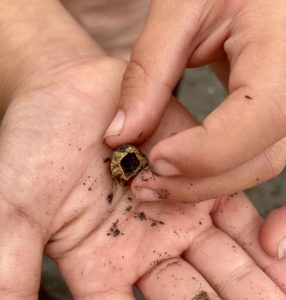
That parent was Jennifer Rosales, mother of 8-year-old Mateo. By the time the family arrived at the tide pools, Mateo was able to identify ghost shrimp, clams and hermit crabs along with other sea creatures. Even better, the video he watched had been filmed at the same tide pools they visited so he recognized different spots. “He knew many of the different scientific names because he’d been studying them in his field guide, prior to the trip,” says Egger. “His mother told me that he was ‘beyond excited,’ being able to identify all the different critters as he ran from here to there.” Jennifer took photos and videos of the trip and the family turned it into a presentation that Mateo shared with his classmates.
Rosales appreciates the lengths Egger will go to for her students. “She gives him material that will help him with what he’s passionate about,” she says. “Mateo is really into farming, so she got this whole packet together for him to study where different foods are grown, how they get from farm to table. He can work at his own pace but still keep up with what the other third graders are doing.”

Fourth-grader Payton Franks is also part of the MODEL program. He lives at a local fish hatchery and once his regular schoolwork is complete, Payton joins his father for hands-on lessons in the care, feeding and life cycles of trout and salmon, supplemented by materials from Egger. He can explain the fertilization process in detail, as well as how iodine kills bacteria and what happens to fish carcasses once their cycle is finished. Along the way, he also picked up some math instruction from a retired man who volunteers at the hatchery. “He likes to keep Payton’s brain going,” says Nichole Franks. “One day they were joking around, and he said, ‘I want you at my trailer at 5 a.m. For every minute you’re late, you’ll owe me .25 cents.’” When he arrived at the trailer several hours later, Payton calculated that he owed the man $32.50.
As Egger is quick to point out, most students don’t multiply decimals until fifth grade. “There aren’t assessments to test this kind of learning,” she says. “We have traditional tests that assess individual skills and standards, and those are important and of quality, no doubt. But this is a different kind of learning, a multifaceted, place-based-learning strategy, and it’s been amazing to get to be a part of it. Payton is learning so much. I’m trying to give him assignments that have him interact with the environment around him.”
Nichole has also seen changes in Payton’s level of enthusiasm for learning. “It’s expanded tremendously,” she says. “He’s gotten more time to spend outside with his dad helping out at the hatchery. Normally that happens during the summer but now we’re doing it during school and he’s incorporating what he’s learning.”

The customized learning approach is producing academic results as well. At the beginning of the MODEL program, students took diagnostic tests in reading and math. When the follow-up scores came in this January, several students had jumped entire grade levels in different subjects. “We track all their data, and some of the jumps have truly been insane.” Egger explains. “Of course, as an educator, I know that this is only one piece of data, and that this program is very different from the traditional, in-person, classroom setting. But, after seeing their weekly progress and growth align with the more rigorous, benchmark testing, it was a sigh of relief. We can believe this data. These kids really are learning in this new, atypical style of remote-teaching.”
While it hasn’t been easy, Egger credits these results to a supportive school district, specifically including Simpson Elementary Principal Chris Cady, and training from the Pacific Education Institute (PEI). “My principal has been just awesome, supporting me every step of the way,” she says. “And that really helps. When you’re walking out to your car on that third late night in a row and everything feels just so hard, so overwhelming-that’s when it really makes a difference. It’s easier to work harder for people who support you. It genuinely has made all the difference.”
Egger has also attended roughly 20 PEI workshops since 2015. “The training I’ve had with PEI has taught me how to be better at creating these place-based, individual plans for kids,” she says. “They’ve also deeply developed my knowledge and understanding of our local environment, because I was originally a western Washington transplant. That’s been vital in helping me create these lessons for the kids-because in order to teach them about their immediate environment, I need to know about it first.”
PEI is an Olympia-based nonprofit that provides outdoor-based, locally relevant STEM professional development for teachers statewide in collaboration with regional conservation groups, nonprofits, and natural resource companies.
As schools begin to return to live instruction, some students are opting to remain in a hybrid model that maintains some of the flexibility of the MODEL program. Egger believes the pandemic has been an opportunity to rethink some aspects of education. “I think there’s something worth noting about these styles of programs,” she says. “They’re not for everyone, but they really do work for some. They offer a different way to approach learning, and if fostered and continued, they could make a real impact upon the different avenues we provide for education as a whole.”
Learn more by visiting the Pacific Education Institute website or calling 360.705.9292



